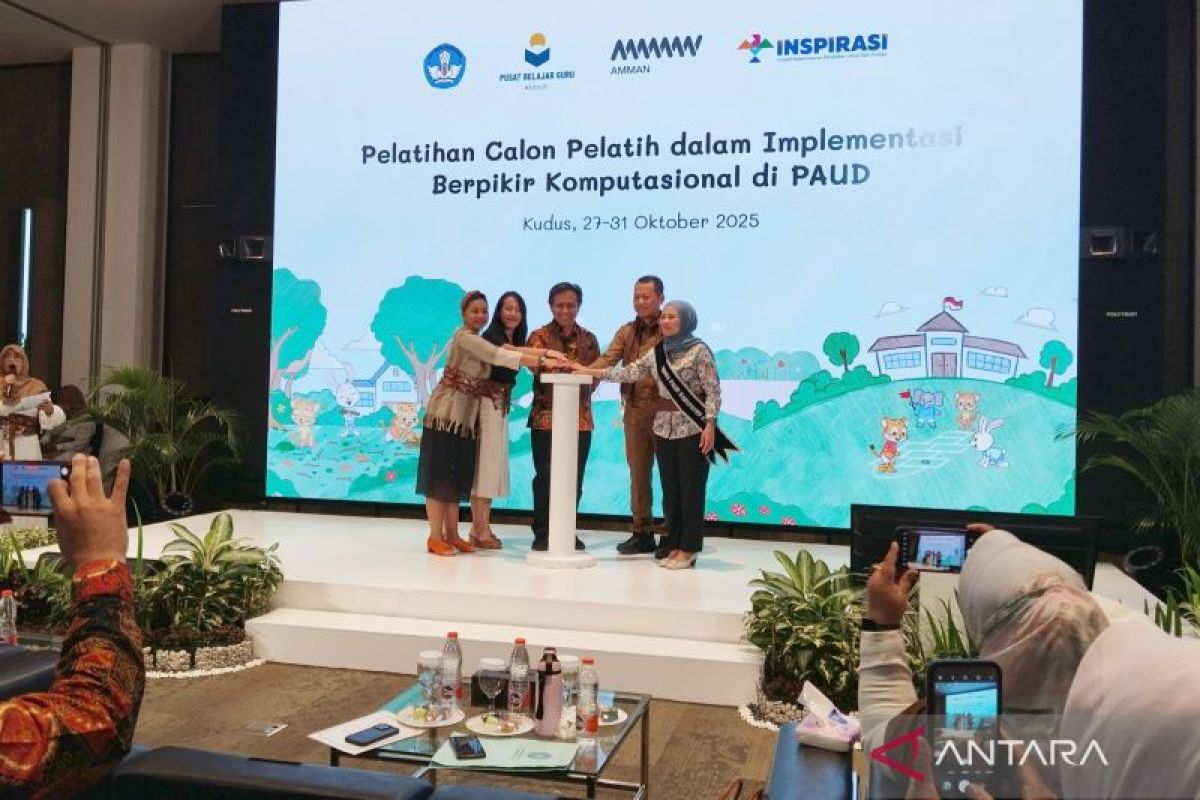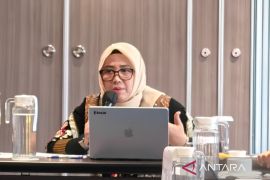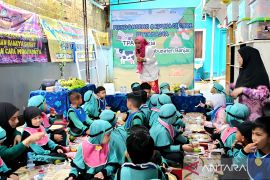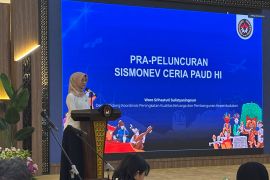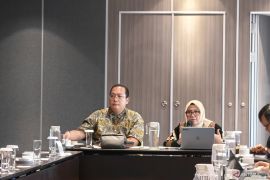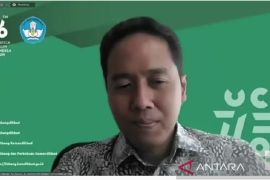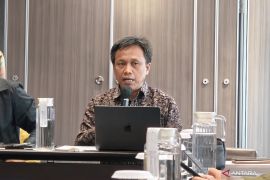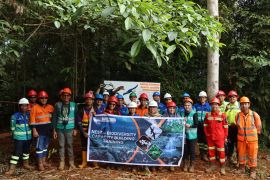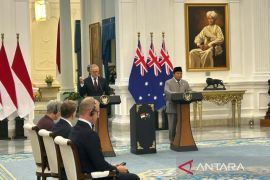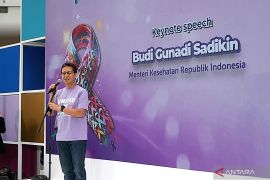Speaking while opening the “Computational Thinking Implementation in Early Childhood Education” trainer workshop at Wisma Djarum Kudus on Monday, Director of Early Childhood and Non-Formal Education Teachers at Kemdikdasmen Suparto said enhancing teacher competence is a strategic move to advance national education outcomes.
He noted that early childhood teachers play a key role in developing logical, systematic, and creative thinking skills that form the foundation for solving complex problems later in life.
According to Suparto, building teachers’ capacity to apply computational thinking supports the four main aspects of teaching competence — professional, pedagogical, social, and personal.
Through a play-based approach, teachers learn to design materials and assessments that foster systematic, creative, and problem-solving skills in children.
Related news: Indonesia to launch CERIA system for early childhood monitoring
The training involved eight PAUD teachers from Kudus and West Sumbawa, two districts recognized for pioneering computational thinking in early education.
The training guide was developed under the supervision of Dr. Irma Yuliantina of the National Accreditation Board for Early Childhood, Primary, and Secondary Education (BAN PDM) and reviewed by Bebras Indonesia, an international initiative promoting computational thinking.
Since 2023, more than 700 teachers and principals from 211 PAUD institutions have adopted computational thinking in daily activities, supported by the Kudus Education Office, the Kudus Teacher Learning Center, and the Bakti Pendidikan Djarum Foundation.
In West Sumbawa, 135 teachers from 29 institutions have implemented the same approach with support from PT Amman Mineral Nusa Tenggara.
Felicia Hanitio, deputy program director of the Bakti Pendidikan Djarum Foundation, said the training helps correct the misconception that computational thinking is a new subject, explaining it is instead a structured way of reasoning developed through daily routines.
PT Amman Mineral Vice President for Social Impact Priyo Pramono said computational thinking builds adaptive mindsets crucial for Indonesia’s 2045 Golden Vision.
Kudus District Head Sam’ani Intakoris added that collaboration between regions can expand the program’s benefits nationwide.
Related news: Revitalizing PAUD becomes priority in basic education acceleration
Translator: Primayanti
Editor: Rahmad Nasution
Copyright © ANTARA 2025
